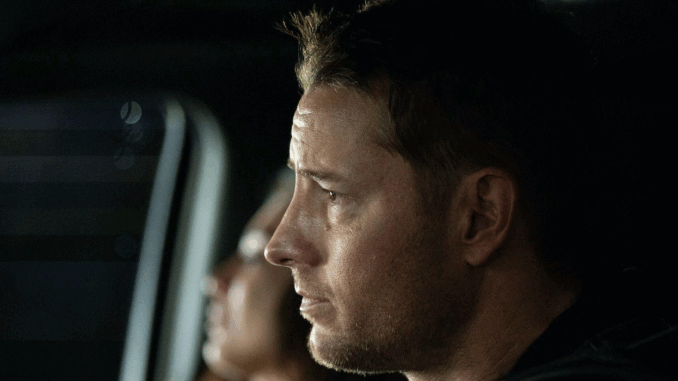
While Tracker is driven by suspense and mystery, its emotional core lies not in the chase—but in the aftermath. Every case that Colter Shaw takes on revolves around someone who has gone missing, but each disappearance is also a symptom of something deeper: trauma, loss, isolation, or unresolved emotional wounds. As each episode unfolds, it becomes clear that Tracker isn’t just about finding people—it’s about understanding why they vanished, and helping the people left behind find peace.
This article dives into how Tracker handles the themes of trauma and emotional recovery, portraying a compassionate lens on grief, resilience, and the human capacity to heal.
More Than a Mystery: Every Case Is a Cry for Help
In many procedural dramas, the victim or missing person is a plot device—someone to be saved or avenged. But Tracker treats each disappearance as deeply personal. Whether it’s a runaway teen, a wrongly accused man, or a mother fleeing domestic abuse, their choices are always rooted in emotional pain.
Rather than treating trauma as a twist, Tracker uses it as a lens. Every episode asks not only “Where is this person?” but also, “What happened to them? What broke inside them that led them to disappear?”
This approach adds emotional weight to every mystery, making the audience care not just about resolution, but about reconciliation.
Colter Shaw’s Personal History: A Tracker Haunted by His Own Past
Colter isn’t just a helper—he’s someone in need of healing himself. His backstory, slowly revealed over the series, includes a fractured family, loss, and a deep sense of guilt surrounding his father’s death. These layers of unresolved trauma are what make Colter such a compelling figure.
He understands the people he searches for because he, too, is searching—for answers, for forgiveness, for peace. His profession becomes a form of therapy: by helping others navigate their darkness, he inches closer to processing his own.
This narrative structure creates emotional symmetry: every case Colter solves is also a mirror to his inner life.
The Ripple Effects of Disappearance
Tracker doesn’t stop at the moment someone goes missing. It also explores the emotional ripple effects on those left behind—families, friends, communities. Often, these people are paralyzed by guilt, shame, or fear, and Colter’s arrival forces them to confront truths they’ve long suppressed.
One mother blames herself for her son’s vanishing because of a fight they had. A father can’t accept that his daughter left to escape his control. A sibling carries resentment that turns to grief.
In every case, Tracker showcases the emotional complexity of survival. Finding the missing person isn’t the end—it’s the beginning of healing.
Mental Health in Focus

The show doesn’t shy away from portraying mental health struggles. Several episodes explicitly address depression, PTSD, substance abuse, and anxiety. Colter interacts with people in deep psychological pain, and his approach is never judgmental. He listens, observes, and adapts his methods—not as a therapist, but as someone who respects pain.
Rather than using mental illness as a villainous trope (a common flaw in crime shows), Tracker humanizes those dealing with emotional suffering. It draws clear lines between someone’s actions and their intentions, encouraging empathy and understanding.
The Moment of Finding: Joy, Regret, or Both
Every episode builds toward the moment Colter finds the missing person. But this moment is rarely triumphant. Sometimes there’s joy. Sometimes, heartbreak. And sometimes, a strange mix of both.
A man who faked his death to escape gambling debts may be physically safe—but emotionally destroyed. A young woman found alive after years of trafficking isn’t just rescued—she’s forever changed.
These complex endings reflect reality: being found doesn’t erase what happened. It simply opens the door for a new chapter—one that may involve healing, but also sorrow and adjustment.
Colter as an Emotional Conduit
Colter’s ability to track people stems not just from skills, but from emotional intelligence. He senses pain. He detects silence. He connects with strangers because he sees what others miss—not just the evidence, but the emotional gaps in their lives.
In several episodes, his interviews resemble counseling sessions. He doesn’t push. He listens. And sometimes, his presence alone gives people permission to say what they’ve never said—to admit mistakes, to ask for forgiveness, to open up.
Colter’s emotional fluency is what makes him not just a tracker—but a catalyst for healing.
Symbolism of Recovery: Nature, Water, and Shelter
The show subtly uses symbolism to reinforce the theme of emotional recovery. Water is often present when characters confront their trauma—rivers, rainstorms, lakes. These moments suggest cleansing, rebirth, or confrontation with the subconscious.
Likewise, shelter plays a recurring role. Many missing people are found in cabins, basements, barns—places of hiding. The act of leaving these shelters becomes metaphorical: stepping out of trauma into the light of reckoning.
Even Colter’s RV, his portable “home,” becomes a symbol of unresolved movement—a man never quite rooted, always on the edge of safety.
Not All Wounds Heal—But We Keep Moving
Tracker offers a realistic view of trauma. Not every character ends up healed. Some wounds remain. Some families stay broken. But the show insists that progress is still possible. That being found matters. That telling the truth matters. That presence, even imperfect, is better than abandonment.
Colter doesn’t offer solutions. He offers a chance—a moment to breathe, to speak, to begin again.
Conclusion
In a world flooded with crime dramas that treat emotions as obstacles, Tracker stands out for its gentle, trauma-aware approach. Every missing person is a human being with a past. Every recovery is a journey, not a destination. And every case Colter takes is about more than clues—it’s about pain, and the possibility of healing.
By blending procedural structure with emotional depth, Tracker becomes more than entertainment. It becomes a meditation on grief, memory, and resilience. And it reminds us that even in the darkest moments, being found—truly seen—is the first step toward hope.
